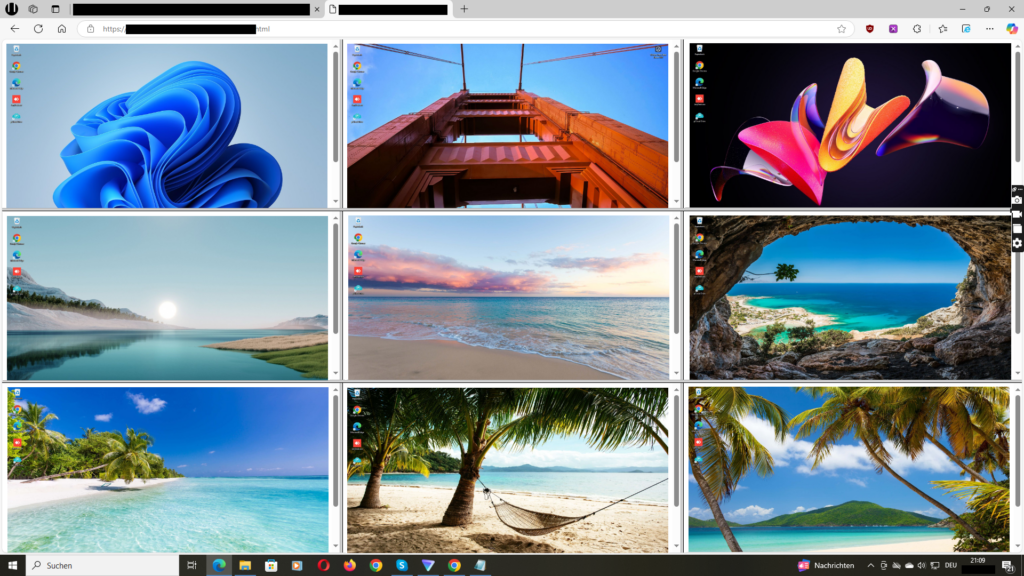Chile Legal Mini-FAQ — Employee Monitoring, Consent, Notice and Proportionality
Wolfeye Editorial Team • Last updated: 22 September 2025

In Chile, employers can monitor company devices for legitimate purposes, but they must respect privacy, provide clear notice, and keep monitoring proportionate. Today the 1999 Personal Data Law (Ley 19.628) still governs processing; in December 2024 a new Data Protection Act was published and it will take full effect after a 24 month vacatio legis. Prepare now with transparent notices, short retention, least intrusive tools, and ARCO rights handling.
Country snapshot
Topic | At a glance |
Current main law | Ley 19.628 on protection of privacy and personal data (1999, as amended). |
New law status | New Personal Data Protection Act approved and published Dec 13, 2024 with a 24 month transition; expected full effectiveness in Dec 2026. |
Authority | Currently administrative oversight is limited; the new law creates a dedicated Data Protection Agency. |
Labor and telework | Law 21.220 on distance work and telework added Chapter IX to the Labor Code in 2020. DT opinions address monitoring tools and proportionality. |
Key links: Ley 19.628 (BCN) • New Data Protection Act – Diario Oficial (Dec 13, 2024) • Context and key takeaways (FPF, Feb 2025) • Ley 21.220 telework (BCN) • DT: Videovigilancia and monitoring criteria (ORD. 408, 2025)
Mini-FAQ for Chile
Do we need employee consent to monitor company devices
Under Ley 19.628, processing generally relies on consent or other lawful bases recognized by law and case-by-case practice. For workplace monitoring, provide an explicit privacy notice and avoid collecting sensitive data unless strictly necessary and lawful. The new Act reinforces transparency and purpose limitation.
Is advance notice required
Yes. Provide a clear privacy notice that explains purposes, tools used, legal basis, data categories, retention, recipients and international transfers, and how to exercise ARCO rights. Make it available at onboarding and in your telework policy.
What does proportionality require
Use the least intrusive monitoring to achieve a legitimate aim. Limit capture to work hours and company devices, prefer sampling rather than continuous recording, and restrict admin access. DT opinions emphasize proportionality and that systems like camera monitoring must not affect worker dignity.
Can we record screens or take periodic screenshots
Yes when justified and disclosed for work purposes on company devices. Set a short default retention such as 14 to 30 days, restrict access and log exports. Disable recording outside working hours.
What are ARCO rights and how do we handle them
ARCO in Chile covers access, rectification, cancellation and opposition. Provide a channel to receive requests, verify identity and respond in statutory timeframes. Document responses and implement corrections or deletions where applicable.
Do we need to register databases or appoint a DPO
Ley 19.628 historically contemplated database notifications in certain contexts; the new Act creates an authority and modern obligations that may include risk assessments and reporting duties. Assess requirements during the transition and map responsibilities in your privacy governance model.
Are cross-border transfers allowed
Yes but you must inform data subjects and adopt safeguards that provide adequate protection. Review processor contracts and international transfer mechanisms.
How does telework law affect monitoring
Law 21.220 requires a written telework agreement and respect for rest and disconnection time. If you use monitoring to control schedules, make sure it aligns with telework rules and does not undermine disconnection rights.
Implementation checklist
- Publish an employee privacy notice and a telework policy that reference monitoring scope and tools.
- Limit monitoring to company devices and work apps. Disable outside work hours and respect disconnection time.
- Use short default retention for screenshots and recordings, for example 14 to 30 days. Log admin access and exports.
- Keep an inventory of processors and cross-border transfers. Adopt contractual safeguards.
- Prepare for the new law by mapping new obligations and updating notices in 2026.
- Provide an ARCO request channel and train managers on respectful, lawful monitoring.
Where Wolfeye fits
Wolfeye is designed for proportionate monitoring: a live view you can turn on when needed, optional recording with short retention, and role based access so only authorized admins can watch or export. This helps you meet transparency and minimization expectations while still providing ground truth for coaching, QA and incident reviews.
Start free trial • Watch the 9 minute tutorial • Live Screen overview
Wolfeye: This short video shows a quick demo
Sources and citations
- Ley 19.628 – BCN – https://www.bcn.cl/leychile/navegar?idNorma=141599
- New Data Protection Act – Diario Oficial (Dec 13, 2024) – https://www.diariooficial.interior.gob.cl/publicaciones/2024/12/13/44023/01/2583630.pdf
- FPF overview of the new law (Feb 2025) – https://fpf.org/blog/chiles-new-data-protection-law-context-overview-and-key-takeaways/
- Ley 21.220 – telework – https://www.bcn.cl/leychile/navegar?idNorma=1143741
- DT guidance on videovigilancia/monitoring (ORD. 408, 2025) – https://www.dt.gob.cl/legislacion/1624/w3-article-127893.html